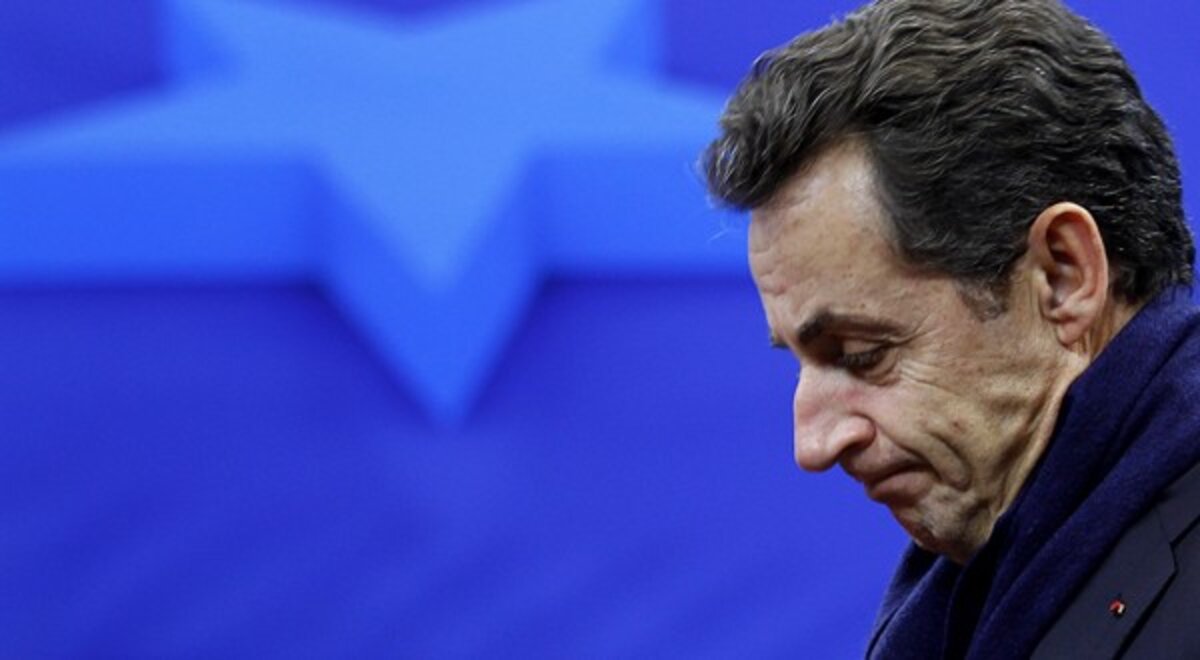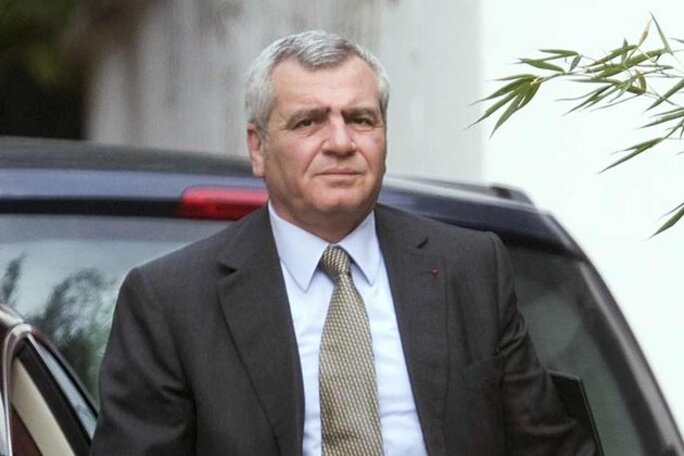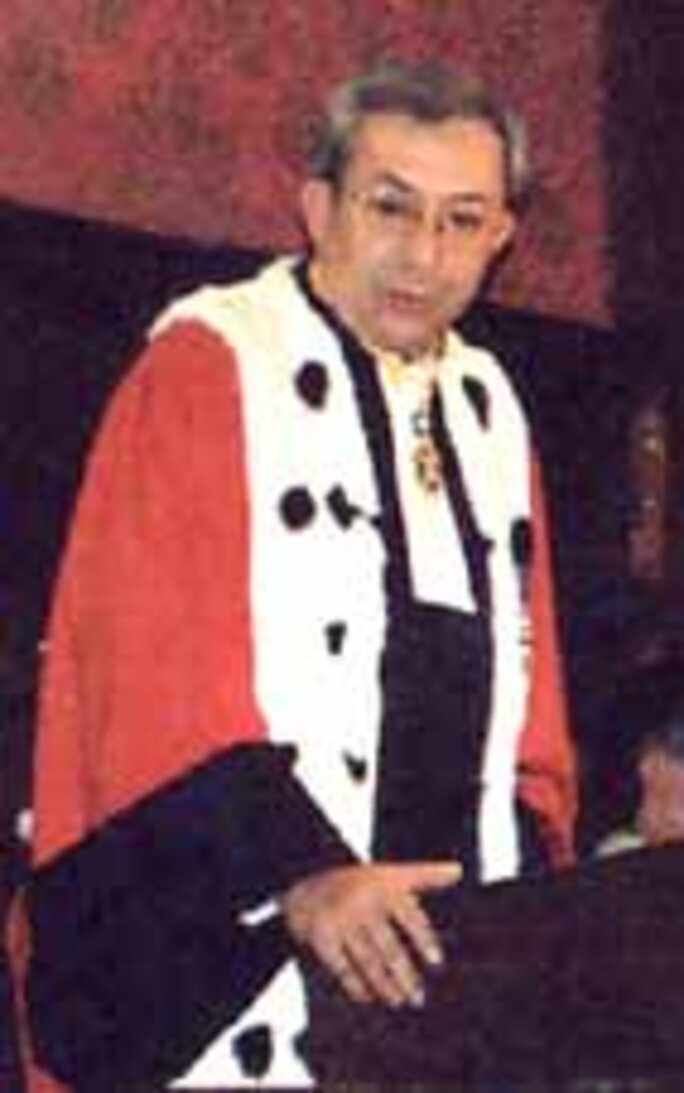The latest scandal to embroil former French president Nicolas Sarkozy, and which is fast developing into what Socialist Party leader Harlem Désir described on Friday as “an affair of state", stems from recent police phone taps of Sarkozy and his lawyer Thierry Herzog ordered by judges investigating evidence that Sarkozy’s 2007 presidential election campaign was funded by the late Libyan dictator Muammar Gaddafi.
The transcripts of the monitored phone conversations led to the opening on February 26th of a judicial investigation into suspected ‘influence peddling’ and ‘violation of the secrecy of an investigation’. According to a report published in French daily Le Monde on Friday, Sarkozy and Herzog illegally obtained highly confidential information from a senior French magistrate at the Court of Cassation, Gilbert Azibert, about two legal cases involving the former French president.
Following their appointment to lead the investigation into the suspected scam revealed by the phone taps, judges Patricia Simon and Claire Thépaut ordered a series of police raids, carried out earlier this week, to search the offices and homes of Herzog and Azibert.
The evidence collected during the raids on March 4th, led by the French police’s financial and fiscal crime unit (the Office central de lutte contre la corruption et les infractions financières et fiscales) suggests the placing under investigation of several of those implicated – a legal move one step short of formal charges - is imminent.
The fast-developing affair, which has rocked both the political class and the judicial profession, began with the separate judicial investigation opened in April 2013 into evidence suggesting that Sarkozy’s successful 2007 presidential election campaign was illegally funded by Gaddafi to the tune of 50 million euros. That ongoing probe is led by judges Serge Tournaire and René Grouman.

Enlargement : Illustration 1

As part of their investigations, the two magistrates, specialised in financial crime, decided to secretly monitor the phone conversations of Sarkozy and two of his former ministers, both close personal allies, Claude Guéant and Brice Hortefeux.
The transcripts of the taps show that Sarkozy became significantly more cautious in his conversations following the revelation in the press last December that Hortefeux, a former interior minister like Guéant, was tipped off by the head of the Paris police’s criminal investigation detective branch (the Police Judiciaire), Christian Flaesch, that he was soon to be questioned in the Gaddafi funding investigation. Flaesch has since lost his job.
The magistrates then discovered that the former French president and his lawyer Herzog tried to escape the taps by acquiring mobile phones that were not registered under their names.
When these were subsequently also placed under surveillance, their conversations revealed that Sarkozy and Herzog were receiving confidential information about the progress of two other investigations from Gilbert Azibert, the senior advocate general for the Court of Cassation (Cour de Cassation), France’s highest court for defining questions of law and which is the instance of last-resort in the case of appeals.

Enlargement : Illustration 2

Azibert, whose political affiliation is known to be to the Right, already had close links with Sarkozy and Herzog. A personal friend of Herzog’s, Azibert climbed the judicial ladder under the successive administrations of conservative president Jacques Chirac and later Nicolas Sarkozy, who in 2008 appointed him as secretary general of the justice ministry under minister Rachida Dati.
Azibert is understood to have passed on to the two men information concerning the latest developments in the fraud and corruption case centred on the financial affairs of L’Oréal heiress Liliane Bettencourt, and notably an appeal launched by Sarkozy to regain evidence seized from him during the investigation.
This tentacular investigation, in which several people close to Sarkozy are due to stand trial, including Eric Woerth, his 2007 election campaign treasurer who later became his budget minister and subsequently labour minister, was closed last year and a trial date has yet to be announced.
Sarkozy was briefly placed under investigation in the case over his suspected manipulation of Bettencourt to receive illegal funding of the 2007 election campaign before magistrates finally decided not to pursue charges.
However, during that investigation, his personal agendas were seized by police, and some of the documents are still being kept as evidence. Sarkozy mounted legal action to retrieve the agendas, and the bid was heard on February 11th by the Court of Cassation, when it also heard the appeals brought by six of those due to be tried in the Bettencourt affair for the charges against them to be dropped. The court’s judgments are due to be pronounced on March 11th.

Azibert allegedly fed Sarkozy and Herzog with secret information about the court’s consideration of the different appeals. But he is also understood to have warned them of the strong interest in the agendas by the Court of Justice of the Republic (CJR), the French court designated to investigate suspected malpractice by government members in the course of their duties, and also to judge them if charges are brought.
The CJR’s Petitions Committee, in charge of its initial investigations of a case, is apparently keen to study the agendas as evidence in its probe into the role of former French finance minister and now International Monetary Fund chief, Christine Lagarde, in the contested arbitration process that led to controversial French tycoon Bernard Tapie being awarded 403 million euros of public money in 2008 ((see more here and here).
Gilbert Azibert is professionally close to all of the Court of Cassation’s magistrates and he has access to their exchanges on the court’s intranet system which include their studies of cases and preparations for court hearings.
According to the report in Friday’s edition of Le Monde, Azibert allegedly asked Sarkozy in exchange to use his influence to support his ambition of becoming a member of the Council of State in Monaco after his impending retirement.
Judges Tournaire and Grouman last month passed on the transcripts of the tapped phone conversations between Sarkozy, Herzog and Azibert to the newly-appointed chief public prosecutor for financial crime, Eliane Houlette, whose post is akin to that of anti-corruption tsar, who on February 26th ordered the opening of the judicial investigation into the alleged conspiracy, headed by judges Patricia Simon and Claire Thépaut. Simon and Thépaut are also in possession of copies of email correspondence between the three men.
Part of their current investigations centre on a week-long visit to Monaco last month by Sarkozy and Herzog when they stayed in one of the principality’s hotels.
Beyond the grave implications for those directly involved in the alleged conspiracy, the probable collateral damage to both the judicial corps and the Paris bar is likely to be significant. The Court of Cassation, the highest French legal court, is now likely to see several of its ranking magistrates questioned by the investigation.
Meanwhile, the immediate public reactions to the scandal from political figures on Friday lifted the curtain on what is likely to become a rowdy debate ahead. Socialist Party first secretary Harlem Désir described the revelations as “an affair of state”, while the party’s parliamentary group leader, MP Bruno le Roux, said they unveiled a “Mafioso system”. Sarkozy’s conservative UMP party, the principal opposition group, denounced a “political operation” against the former president, while one of its MPs close to Sarkozy, Patrick Balkany, said the scandal was the result of a “deviance of the justice system”.
Sarkozy’s lawyer Thierry Herzog, who has denied involvement in influence peddling, said the allegations were “artificially set-up”. He argues that the phone taps of he and Sarkozy’s conversations amounted to a violation of the rights given to a defence counsel, and cannot justify the opening of a judicial investigation, pointing to a lengthy legal battle ahead.
-------------------------
English version by Graham Tearse


